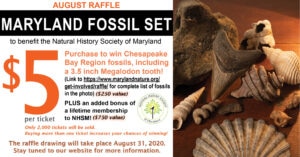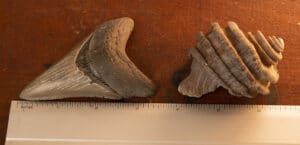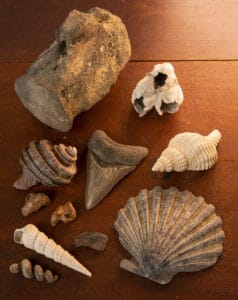The Natural History Society is having a raffle this month! Support the NHSM while having the chance to win a Lifetime Membership to the NHSM and a Maryland Fossil set. Tickets are only $5 each–buy now because the drawing is limited to only 2,000 tickets!
https://www.marylandnature.org/get-involved/raffle/
During these difficult times your support and donations are appreciated as we explore new ways to connect the NHSM community online and to bring you the quality programs you expect from us in other ways. Raffle ticket sales will go toward this effort as well as future programming, care and conservation of our collections, and administrative efforts for the NHSM.
About Our Prize
As an NHSM Lifetime Membership (value $750) member you will receive discounts on many of our programs—from lectures, workshops, and courses offered in our museum—to canoe trips, nature walks, and fossil hunts in the great outdoors. Members also receive a discount to our annual Spring Gala.
A Maryland Fossil set (value $250) that highlights an Otodus megalodon tooth (Meg) from the largest shark that ever lived and an Ecphora gardnerae gardnerae, the Maryland State Fossil. Both come from the Miocene era (5.3 to 23 Million years ago) and were found at Calvert Cliffs on the Chesapeake Bay, a world-class fossil location. The Meg is an exceptional lower jaw tooth with great serrations and root that measures 3.559 inches (longest slant height). The Ecphora is a beautiful specimen of this predatory snail with well-preserved ribs and umbilicus – this is one of the first American fossils described in the scientific literature. Other Miocene fossils include another large Gastropod (Buccinofusus parilis), a Bivalve (Chlamys santamaria), a skate dental pavement (crushing teeth) (Myliobatis pachydon), and a beautiful example of a barnacle cluster (Balanus concavus). In addition, the set contains a cetacean (whale/porpoise) vertebra and hard to find left and right internal ear bones. Paleocene fossils (55-59 million years old) include both the shell and internal mold of Turritella mortoni from the Potomac River.
Photos and details of the fossil set can be viewed https://www.marylandnature.org/get-involved/raffle/
Thank you in advance for contributing to the success of the August raffle.




